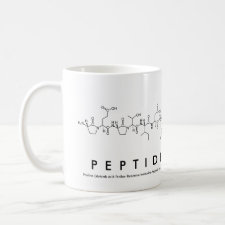
Authors: Ma C, Chen H, Sun N, Ye Y, Chen HX
Article Title: Preparation of Molecularly Imprinted Polymer Monolith with an Analogue of Thiamphenicol and Application to Selective Solid-Phase Microextraction.
Publication date: 2012
Journal: Food Analytical Methods
Volume: 5
Issue: (6)
Page numbers: 1267-1275.
DOI: 10.1007/s12161-012-9368-8
Abstract: A molecularly imprinted polymer (MIP) monolith has been prepared and characterized. Its application to the assay of thiamphenicol in milk with high-performance liquid chromatography-photodiodes array detector was validated. The newly developed MIP monolith was produced using an analogue to thiamphenicol as the template molecule to avoid major traditional drawback associated with MIPs of residual template bleeding. The MIP monolith synthesized in a micropipette tip could be connected with syringes in different sizes simply to perform solid-phase microextraction process without any other treatment. This molecularly imprinted polymer monolith microextraction (MIPMME) method showed high selectivity and enrichment ability for thiamphenicol (TAP). Several parameters affecting MIPMME were investigated, including the flow rate, volume, pH and salt concentration of sample, the type and volume of washing solution, and the type and flow rate of eluent. The recovery of this method for TAP was investigated and high recoveries of 93.5 ~ 96.8% from milk were obtained with relative standard deviations less than 6.3%
Template and target information: thiamphenicol, TAP
Author keywords: Molecularly imprinted polymer monolith, Polymer monolith microextraction, high-performance liquid chromatography, Thiamphenicol, milk



Join the Society for Molecular Imprinting

New items RSS feed
Sign-up for e-mail updates:
Choose between receiving an occasional newsletter or more frequent e-mail alerts.
Click here to go to the sign-up page.
Is your name elemental or peptidic? Enter your name and find out by clicking either of the buttons below!
Other products you may like:
 MIPdatabase
MIPdatabase









